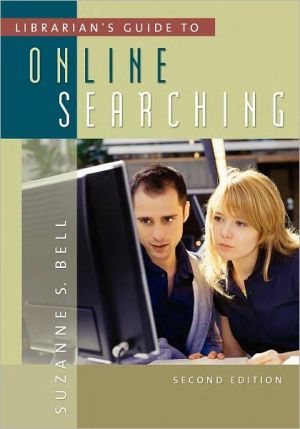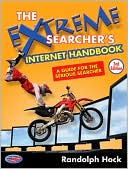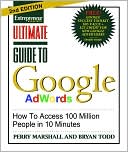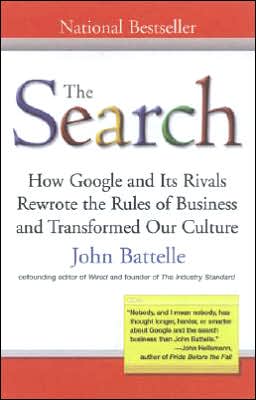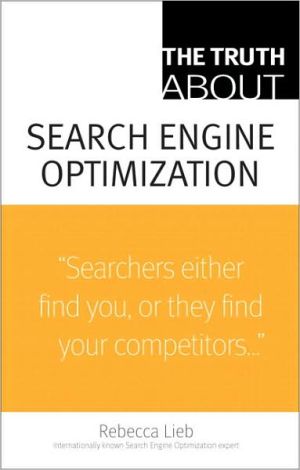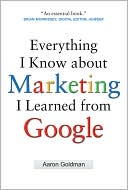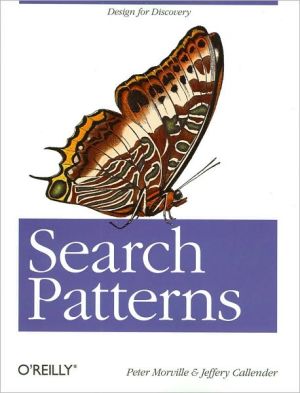Librarian's Guide to Online Searching: Second Edition
To succeed as searchers, all librarians require both a basic idea of how databases are put together and a repository of concepts and techniques to draw upon. With such essentials well in hand, the searcher can plunge into almost any database and master its intricacies (and idiosyncrasies) in relatively short order.
Search in google:
To succeed as searchers, all librarians require both a basic idea of how databases are put together, and a repository of concepts and techniques to draw upon. With such essentials well in hand, the searcher can plunge into almost any database that comes along and master its intricacies (and idiosyncrasies) in relatively short order. Bell's conversational style, coupled with her Searcher's Toolbox, promises increased flexibility and adaptability. This book will prove a handy guide for librarians in every conceivable information environment and across all levels of experience.The ability to understand and navigate online environments and databases is fast becoming an essential skill for librarians. Now in a revised and updated edition, this book provides a handy guide for librarians in every conceivable information environment and across all levels of experience. "Bell's revision of this online searching guide will be invaluable to anyone starting out or looking for a refresher course on this topic. In clear concise language, the author covers everything from Boolean searching to using specific topic-based databases. . . . This easy-to-use manual, written with just a touch of humor and not a drop of condescension, is sure to be embraced by librarians of all skill levels—including the technology challenged. . . . This resource would make an ideal textbook for a library science course on online searching or simply for individuals brushing up on their searching skills."VOYA
Preface xiiiAcknowledgments xvii1 Database Structure For Everyone: Records, Fields, And Indexes 1Historical Background 1Indexing and Abstracting Services 1From Printed Volumes to Databases 3Database Building Blocks 4Fields and Records 4Quick Recap 5Beyond Fields and Records: Field Indexes 6Quick Recap 11Examples of Indexes 11Exercises and Points to Consider 16Suggested Reading 17Notes 172 Working With Database The Searcher's Toolkit: Part 1 19Searcher's Toolkit: Part 1 19Basic Tool No. 1: Boolean Logic 19Quick Recap 24Basic Tool No. 2: Controlled Vocabulary 24Basic Tool No. 3: Field Searching 26Terms in the Searching Lexicon 27Quick Recap 28Applying the Tools 29Master File Select: Notes and Search Examples 29Exercises and Points to Consider 35Notes 373 The Searcher's Toolkit: Part 2 39Searcher's Toolkit: Part 2 39Basic Tool No. 4: Proximity Searching 39Basic Tool No. 5: Truncation 43Quick Recap 46Basic Tool No. 6: Limits to Constrain Your Search 46Basic Tool No. 7: "Pearl Growing": A Useful Search Strategy 46Quick Recap 48Your Mental Toolkit 48Summary and Advice 48Exercises and Points to Consider 49Suggested Reading 50Notes 504 Social Science Databases 51Introduction to Subject Databases 51Library Literature & Information Science 52Background and Coverage 52Notes and Search Examples 52Working with Results: Mark and Output 60Quick Recap 61ERIC via FirstSearch 61Background and Coverage 61Notes and Search Examples 62Working with Results: Mark, Functions, and Output 70QuickRecap 71PsycInfo from Ovid 71Background and Coverage 71Notes and Search Examples 73Working with Results: The "Results Manager" 81Additional Feature: The PsycInfo Thesaurus 81Quick Recap 81Exercises and Points to Consider 83Notes 855 Databases For Science And Medicine 87Medline and PubMed 88Medline 88PubMed: More than Medline 93Introduction to the PubMed Interface 94Output in Medline and PubMed 100Getting to the Full Text 101Quick Recap 101The Web of Science and the Citation Indexes 102History of the Citation Indexes 102Web of Science Content 103An Index Focused on Citations 103Additional Differences in Available Fields 104Searching the Web of Science: Main Search Interface 105Cited Reference Searching 108E-mail, Print, Save, or Export Results 115Advanced Features: Advanced Search and Analyze 117Quick Recap 118Exercises and Points to Consider 119Notes 1216 Bibliographic Databases 123WorldCat: The "OPAC of OPACs" 124Background and Coverage 124A Tool for Many Parts of the Library 125Notes and Search Examples 126Quick Recap 135WorldCat.org 136Background: The Path to WorldCat.org 136Notes and Search Examples 138Quick Recap 142Revisiting Your Local OPAC 143Exercises and Points to Consider 143Notes 1447 Humanities Databases 147America: History and Life 148Background and Coverage 148Notes and Search Examples 148Related Records, Folder, and Output Options 154Quick Recap 157MLA International Bibliography 158Background and Coverage 158The Marked List and Output 166Additional Feature: Directory of Periodicals 169Quick Recap 169Exercises and Points to Consider 171Notes 1728 Numerical Databases 173Finding Numbers 173Concepts about Numbers 174Quick Recap 177A Comment about Searching for Numbers 177LexisNexis Statistical 177Background and Coverage 177Notes and Search Examples 179Working with Results: "Tag" and Output 188Going from LexisNexis Statistical to Web Sites 189American Factfinder 190Background and Coverage 190Notes and Search Examples 190Bureau of Labor Statistics 195Pay & Benefits at the Bureau of Labor Statistics 196Occupation Information at the Bureau of Labor Statistics 199Quick Recap 200Numbers and the Reference Interview 201Exercises and Points to Consider 201Suggested Readings 202Notes 2029 Focus On People 205Part 1: Information-seeking Behavior 206Some Theoretical Background on Information Seeking 206Applied Research on Information-seeking Behavior 208Quick Recap 213Part 2: The Reference Interview 213What Is the Real Question? 214Question Negotiation in the Reference Interview 216Beyond the Face-to-Face Reference Interview 220Why Is the Reference Interview So Important? 222Quick Recap 222Exercises and Points to Consider 223Suggested Readings 223Notes 22310 Choosing The Right Resource For The Question 225Start with the Reference Interview 226Questions for Databases 226Why and When to Try a Database 226Quick Recap 229Choosing a Database 230Questions for the Web 232Personal Uses of the Web 232Professional Uses of the Web 232Quick Recap 234Exercises and Points to Consider 234Suggested Reading 234Notes 23411 Evaluating Databases 237Basic Facts and Figures 238Initial Factual Information to Gather 238Testing and Benchmarking 242Testing 242Benchmarking 247Making a Request for Purchase 249Elements to Include in the Request 249Exercises and Points to Consider 251Suggested Readings 251Notes 25212 Teaching Other People About Databases 253Teaching Principles 254Principle 1: Teach to Your Audience 255Principle 2: Avoid Lecturing 255Principle 3: Wait for Answers 256Principle 4: Less Is More 257Principle 5: Transparency in Teaching 257Principle 6: You Have the Right to Be Wrong 258Principle 7: Teaching with Technology 258Principle 8: Practice 259Database Teaching Opportunities 260Teaching at the Reference Desk 261Teaching an Information Literacy Session 261A Staff Presentation 266The Full Semester Class 267Exercises and Points to Consider 268Suggested Readings 268Notes 269References 271Index 283
\ From the Publisher"Many librarians will admit that online searching is one of the more pleasurable and rewarding professional activities. This book makes the process all the more enjoyable and is a thoroughly comprehensive and intelligently compiled work."\ -\ Online Information Review, 31,6\ "LG covers the basics that haven't changed over 35 years, even as the interfaces have altered dramatically. Good snline searchers, reference librarians, and library instruction librarians still need to know about file structure fields, Boolean logic, proximity, truncation, indexing, etc. Bell covers this nitty-gritty….Students may be overwhelmed at first, but the advice reflects Bell's experience as an academic reference librarian: don't be afraid to take on even difficult and scary challenges, such as finding numeric data or helping someone search a system that you don't know very well….[v]aluable for its general approach, underlying explanations, and strategies. These don't change regardless of the vagaries of specific systems. That's what we must focus on when we teach search."\ -\ Library Journal\ "It is obvious throughout this volume that the author works in the trenches and knows the subject matter. The information given is basic in the right places and more complex when necessary. It would be a useful tool for pre-librarians or working librarians, and the early chapters would be helpful to the general researcher."\ -\ VOYA\ "In this Internet Age, database users soon learn how invaluable search strategies and effective search skills can be in the quest for information. This book suggests ways to obtain these skills, while providing a general introduction to searching online environments. Starting with historical background, the author discusses database structure-records, fields, and indexes-and continues exploring basic search concepts, including Boolean logic, controlled vocabulary, proximity searching, and truncation. Subsequent chapters focus on commercial databases in specific subject areas. Other chapters examine information seeking behaviors, reference interviews, database evaluation, and teaching others about databases. The content is practical, user-friendly, and enhanced by screenshots, exercises, and supplementary materials. Full of helpful advice and insightful commentary, this text is an outstanding reference tool."\ -\ Booklist/Professional Reading\ "This is a really good and comprehensive textbook which covers all relevant aspects of online retrieval and bridges a gap in the market. For academic libraries this book is a must-have… For library schools, it is recommended to use as a textbook in class in the undergraduate studies."\ -\ E-LIS\ "This guide is useful to librarians and library science students wishing to increase their online searching skills. This book can serve as a resource to help improve searching databases….As budget limitations are being announced for libraries, librarians will need to evaluate and justify database subscriptions or renewals of these resources. Index. Recommended."\ -\ Library Media Connection\ \ \
